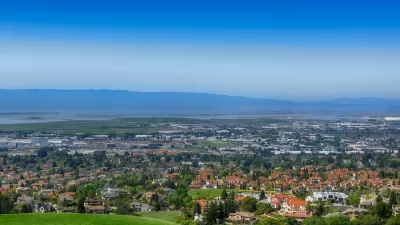A new Pew Charitable Trusts report discusses the ongoing recovery of American cities from the 2008 Great Recession, more than five years after it officially ended.
According to Mark Niquette of Bloomberg News, a recent Pew Charitable Trusts report found that most large U.S. cities have not recovered from the recession that ended in June 2009. For the report, Pew analyzed "financial statements for the central cities of the 30 most-populous metropolitan areas and found that as of 2012 a majority still hadn’t recovered from the recession that ended in June 2009. Revenue of 18 municipalities declined in 2012 after adjusting for inflation, with eight logging the lowest collections since the economic slump started in 2007."
The researchers accounted for the "drop in property-tax collections, generally a city’s largest source of financing, and reduced funding by states and the federal government, for most of the revenue declines. Both categories fell by an average of 4 percent in 2012," concluded the Pew report.
However, it also found that "[c]ities that rely on charges, fees and taxes on income and sales—such as Boston, Minneapolis and New York—bucked the trend and exceeded pre-recession revenue peaks in 2012, the report said. Those sources tend to respond more quickly to an improving economy."
FULL STORY: Cities Struggle to Recover From U.S. Recession, Pew Says

Alabama: Trump Terminates Settlements for Black Communities Harmed By Raw Sewage
Trump deemed the landmark civil rights agreement “illegal DEI and environmental justice policy.”

Planetizen Federal Action Tracker
A weekly monitor of how Trump’s orders and actions are impacting planners and planning in America.

The 120 Year Old Tiny Home Villages That Sheltered San Francisco’s Earthquake Refugees
More than a century ago, San Francisco mobilized to house thousands of residents displaced by the 1906 earthquake. Could their strategy offer a model for the present?

Rural Population Grew Again in 2024
Americans continued to move to smaller towns and cities, resulting in a fourth straight year of growth in rural areas.

Safe Streets Grants: What to Know
This year’s round of Safe Streets for All grant criteria come with some changes.

Rural Missouri Transit Service Could Lose State Funding
OATS Transit offers low-cost rides to primarily elderly rural residents with little or no access to other transportation options.
Urban Design for Planners 1: Software Tools
This six-course series explores essential urban design concepts using open source software and equips planners with the tools they need to participate fully in the urban design process.
Planning for Universal Design
Learn the tools for implementing Universal Design in planning regulations.
Clanton & Associates, Inc.
Jessamine County Fiscal Court
Institute for Housing and Urban Development Studies (IHS)
City of Grandview
Harvard GSD Executive Education
Toledo-Lucas County Plan Commissions
Salt Lake City
NYU Wagner Graduate School of Public Service




























